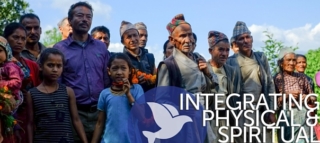Integrating Physical & Spiritual: From Principle to Practice
Reconciled World’s third Core Principle is Integrating Physical and Spiritual. It means that we acknowledge that people are spiritual and physical beings, all intertwined in a way that there is really no such thing as “spiritual problems” and “physical problems”. So called “physical problems” always affect both our body and our spirit, and our spiritual state impacts our physical reality in a constant feedback loop. Likewise, following Jesus means submitting every aspect of our lives to Him–not just having some kind of “spiritual” experience. Even though I feel like a broken record (there’s an archaic analogy for you!), I feel like I should point out that we aren’t very unique or creative in this idea. Christians have been faithful to this core principle since the Apostles [...]








